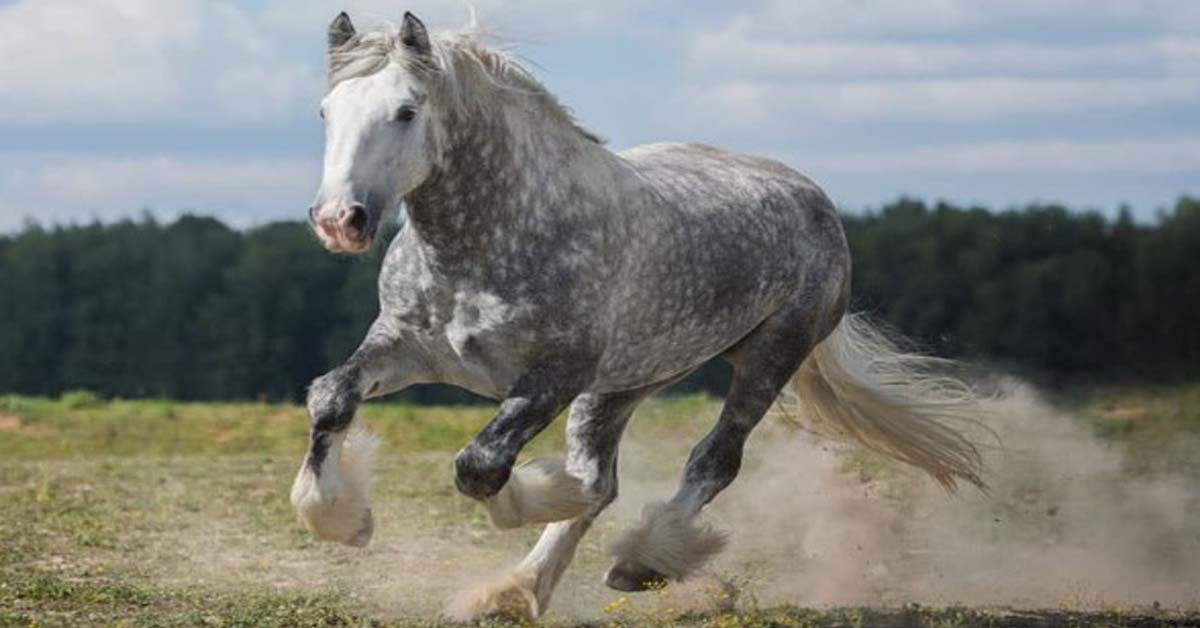The petite Morkie Dog is a charming and affectionate canine companion, often likened to a delicate ethereal being, yet possessing the stubbornness akin to a mule. Despite their diminutive size, these little darlings exude confidence and vigor, although they should not be mistaken for the teddy bears they often resemble in appearance.
As a crossbreed between the Yorkshire Terrier and Maltese, the Morkie may inherit traits from either parent, but typically exhibits a gentle and playful nature, craving attention from its owners. While it can form strong bonds with older children, its delicate frame makes it susceptible to injuries from rough handling. Additionally, the Morkie’s boldness may lead it into trouble when interacting with other dogs, necessitating cautious supervision.
The Maltese’s characteristic low-shedding coat is prominent in the Morkie, though its maintenance requires diligent daily brushing, along with regular baths and trims to keep it in pristine condition.
Despite its small stature, the Morkie adapts well to various living environments, thriving even in compact apartments with just a few short walks a day to keep it content.
Given the potential health issues inherited from its parent breeds, prospective owners should thoroughly inquire about the health history of the Morkie’s parents and insist on health guarantees from reputable breeders. Unfortunately, some unscrupulous breeders may breed Morkie puppies as a means of disposing of subpar breeding stock, so caution is advised.
Thanks to the robust lifespan of the Yorkshire Terrier, the Morkie typically enjoys a life expectancy of 13 to 15 years, providing years of companionship and joy to its fortunate owners.
- Origin: North America
- Height: 6-8 inches
- Weight: 4-8 lb
- Morkie Lifespan: 10-13 years
- Color: black, gray, blue, cream, white, fawn, gold/yellow, brown / chocolate/liver
Breed Characteristics Of Morkie
Understanding a Morkie requires recognizing their obliviousness to their small size and fragility. These courageous little companions fearlessly assert themselves in various situations, whether confronting larger dogs, welcoming guests, or facing unfamiliar stimuli like veterinary visits.
Within the home, Morkies exhibit unwavering loyalty as devoted lapdogs, eagerly accompanying their owners everywhere and craving constant affection. While they relish lounging on laps, they also possess a playful demeanor, enthusiastically engaging in activities like chasing balls for hours on end.
Ever vigilant, Morkies serve as attentive watchdogs, albeit sometimes overly so, alerting their owners to approaching footsteps or unfamiliar sounds with enthusiastic barking. Despite their generally sociable nature with other dogs, they are prone to injury and should only be left in the company of gentle companions. Consequently, they may not be the best choice for households with young children who may inadvertently cause harm.
| Energy level: 4/5 Point | Friendship for strangers: 2/5 Point |
| Exercise requirements: 1/5 Point | Vigilance: 1/5 Point |
| Playfulness: 4 Point | Ease of training: 3/5 Point |
| Affection level: 3/5 Point | Fitness requirements: 3/5 Point |
| Friendship for dogs: 2/5 Point | Heat sensitivity: 4/5 Point |
| Friendly to other pets: 2/5 Point | voice: 5/5 Point |

History Of The Morkie
While some designer breeds can be attributed to specific breeding decisions by individual breeders, the origin of Morkies follows a different path.
Probably, Maltese-Yorkie mixes occurred naturally before their popularity surged, but intentional breeding of Morkies didn’t begin until the 1990s when designer breeds gained traction. With their hypoallergenic coats, endearing appearance, and affectionate yet spirited demeanor, the demand for Morkies quickly soared.
As mixed-breed dogs, Morkies do not receive recognition from the American Kennel Club. However, they can be registered with organizations dedicated to designer breeds, such as the American Canine Hybrid Club and the International Designer Canine Registry.
Appearance
It’s important to note that as a mixed breed, the appearance of Morkies can vary. However, akin to both the Maltese and Yorkshire Terrier, Morkies typically present as small dogs, weighing around 5 – 7 pounds and standing at a height of 7 – 9 inches.
Drawing from their Yorkshire Terrier lineage, Morkies often inherit their coloring, which can include shades of black, brown, white, or golden. Their coats tend to be long, although many Morkie owners opt for shorter cuts. Additionally, their ears may either stand erect like a Yorkshire Terrier’s or hang down like a Maltese’s.
With their small, bright, and inquisitive eyes, complemented by petite black noses, Morkies exude undeniable charm and self-awareness – especially when there’s a tempting treat involved.
Temperament
Morkies are spirited and playful little companions, brimming with joy despite their small stature. Their tiny frames belie their boundless energy and charismatic personalities! They delight in playful antics, whether it’s chasing toys around the house or frolicking in the yard with children.
Due to their diminutive size, Morkies generally fare well with adults and older children. However, the exuberance of younger children can inadvertently pose a risk to the delicate Morkie during playtime.
In terms of household companionship, Morkies typically get along swimmingly with other small dogs and cats. Caution is advised around larger dogs, as their rough play may cause harm to the petite Morkie, given their obliviousness to their size.
Beneath their playful demeanor and occasional feistiness, Morkies are affectionate and devoted companions. They form strong bonds with their owners and thrive on companionship, often seeking to be by their side at all times. Nevertheless, it’s crucial to strike a balance between affection and independence, as indulging their clingy tendencies may lead to behavioral issues such as separation anxiety.
While their small size makes them well-suited for apartment living, their tendency to bark, particularly when left alone, can be a concern for neighbors. Ideally, owners should strive to minimize separation anxiety by ensuring someone is often present or by taking the Morkie along when leaving the house.
Ultimately, Morkies flourish in homes where they receive ample love, attention, and companionship, making them delightful additions to families willing to provide a nurturing and attentive environment.
Personality

Many Morkie enthusiasts affectionately describe this breed as “fluffballs” overflowing with love for their humans and a penchant for socializing with both people and fellow pups. Despite their small stature, Morkies possess a surprisingly large personality, brimming with energy to match.
With their Terrier lineage, Morkies can exhibit a charmingly stubborn streak. Training may present some challenges, but with patience and consistency, Morkies can become obedient and responsive to commands.
Additionally, Morkies excel as watchdogs, readily alerting their owners to any potential intruders or disturbances. They take their watchdog duties seriously and will vocalize their concerns if they sense anything amiss.
While Morkies may form a strong bond with one particular family member, they are generally amiable towards others in the household. However, they thrive on attention and may be particularly suited to households where they can receive ample companionship and interaction.
Morkie Health
The most prevalent health concerns observed in Morkies are related to their eyes, ears, and oral health, which are common issues inherited from the parent breeds. Additionally, Morkies are predisposed to conditions like collapsed trachea, reverse sneezing, hypoglycemia, portosystemic shunt, and patellar luxation.
However, it’s important to note that not all Morkies will experience these health issues. While some may be affected by hereditary conditions, others may remain perfectly healthy.
To mitigate the risk of acquiring a Morkie puppy prone to inherited health problems due to irresponsible breeding practices, it’s advisable to obtain your pet from a reputable breeder. Ethical breeders carefully select their breeding lines and prioritize the prevention of hereditary issues, reducing the likelihood of costly veterinary bills in the future.
The primary goal of responsible breeders is to produce healthy, well-adjusted puppies that contribute positively to the breed’s reputation, rather than prioritizing profit over the welfare of the animals, as may be the case with many backyard breeders.
Of course, ensuring your Morkie’s health and well-being doesn’t solely rely on genetics. Providing ample attention, a balanced diet, regular exercise, mental stimulation, and routine veterinary care are essential components of responsible pet ownership. By diligently attending to your Morkie’s needs, you can help ensure a happy and problem-free life for your furry companion.
It’s also advisable to avoid “teacup” Morkies, despite their undeniable cuteness. These miniature versions often suffer from a myriad of health issues, as their unnaturally small size is the result of unethical and rushed breeding practices. A canine cannot properly develop in such a tiny form, and “teacup” Morkies are typically the product of irresponsible breeding.

Care Of Morkie
Regular veterinary check-ups are essential for maintaining your Morkie’s health and detecting any potential health issues early on. Your veterinarian can guide developing a comprehensive care routine to ensure your canine companion remains healthy and happy.
Morkies, like many small breeds, can exhibit stubbornness and high energy levels. To channel their energy and prevent destructive behavior, it’s important to provide them with regular exercise. Aim for at least one good half-hour walk per day, supplemented with active play sessions and shorter walks as needed. However, be mindful not to over-exercise them due to their small size, as this could potentially cause injury.
Daily grooming is crucial for Morkies to keep their coat free of debris and pests. Additionally, regular nail trims every one to two months are necessary to prevent their nails from becoming too long and causing discomfort. Using a harness instead of a collar during walks can help prevent tracheal collapse, a common issue in small breeds like Morkies. It’s also important to ensure that others handle your Morkie with care due to their fragile nature.
Dental care is another important aspect of Morkie care, as small breeds are prone to dental issues. Brushing your Morkie’s teeth daily is recommended, and your veterinarian can guide proper brushing techniques to maintain their oral health effectively.
Best food for Morkie
- Orijen Grain Free Dry Puppy Food
- Orijen Six Fish Grain-Free Dry Dog Food
- Fromm Gold Small Breed Adult Dog Food
- Wellness CORE Natural Grain-Free Dry Dog Food
Feeding

Despite its small size, the Morkie is a breed with a big appetite. It may constantly seek food, but it’s essential not to overfeed it. Don’t be swayed by its whining; maintaining a strict feeding schedule is crucial.
Consistency is key when it comes to feeding your Morkie. Stick to the same feeding times every day to establish a routine. This not only helps regulate your puppy’s bathroom schedule but also prevents overeating. Remove any uneaten food after your puppy has finished eating to discourage grazing throughout the day.
Given their small stature, portion control is vital to prevent your Morkie from becoming overweight. By carefully monitoring their food intake, you can ensure they maintain a healthy weight and regular bathroom habits.
Grooming
Morkie coats often exhibit a combination of traits inherited from their Maltese and Yorkshire Terrier ancestors, including a variety of colors. These can range from black, brown, white, to a blend of these hues. Many Morkie owners are aware that the coat color of a Morkie puppy may change as they mature.
Both the Maltese and Yorkshire Terrier breeds are known for their non-shedding coats, as they possess hair rather than fur. While this characteristic reduces the amount of shedding, regular brushing is still necessary to prevent matting or tangling of the hair. This low shedding quality may make Morkies suitable for individuals with allergies, although it’s important to note that they are not considered hypoallergenic.
Training
The Morkie possesses a higher level of intelligence than many expect, making them enthusiastic learners when it comes to canine tricks and games. Training should include leash walking and recall commands to ensure they can be controlled effectively.
Despite their adorable appearance, Morkies can exhibit a surprisingly playful demeanor, especially when outdoors. They may engage in activities such as chasing squirrels or even neighboring cats. Therefore, early and consistent socialization with other dogs and people is essential for building their confidence and ensuring they interact positively with their surroundings.
Exercise
Despite their small size, Morkies are relatively energetic and require regular exercise to stay healthy and happy. A brisk walk in the morning and another in the evening will suffice to meet their exercise needs.
In addition to walks, playtime is essential for Morkies. They enjoy chasing balls or toys indoors and frolicking in a grassy area. However, it’s crucial to keep them on a leash or in a securely fenced area, as they can be vulnerable to attacks from birds of prey if left unattended outdoors.
Without sufficient exercise, Morkies may become bored and exhibit destructive behavior such as excessive barking and property damage. They tend to chew furniture, scratch doors, or have accidents indoors, especially if they suffer from separation anxiety or boredom.
To prevent destructive behavior, it’s important to provide Morkies with mental stimulation and enrichment activities, such as puzzle toys or interactive games, even when you’re not at home. Additionally, having a furry companion can provide them with companionship and entertainment, reducing the risk of boredom-related issues.
Adoption Center Of Morkie
Other Dog Breed And Further Research
FAQs
Morkie Puppy Price
The average price of a Morkie ranges from $600 USD to $2000 USD.
Common Health Problems of Morkies
Morkies may be prone to eye, dental, and ear health issues common in the parent breeds. Additionally, they may experience collapsed trachea, reverse sneezing, hypoglycemia, portosystemic shunt, and patellar luxation.
Are Morkies High Maintenance?
While some Morkies may require regular grooming, they typically do not have the long, high-maintenance silky hair seen in some Yorkshire Terriers. Maintenance for Morkies is generally minimal, with haircuts needed only every 8 weeks in some cases.
Do All Morkies Bark a Lot?
Yes, Morkies are known to bark. Like Yorkshire Terriers, Morkies have a tendency to bark, especially when someone approaches. Despite their small size, they can serve as effective guard dogs due to their alert nature.
What’s the Life Expectancy of a Morkie?
The life expectancy of a Morkie ranges from 10 to 17 years. Compared to medium and large breeds, Morkies tend to live longer lives. However, like all dogs, they may eventually succumb to illnesses such as cancer, heart conditions, or respiratory issues.












3 thoughts on “All Best Full Information About Morkie Dog Breed”